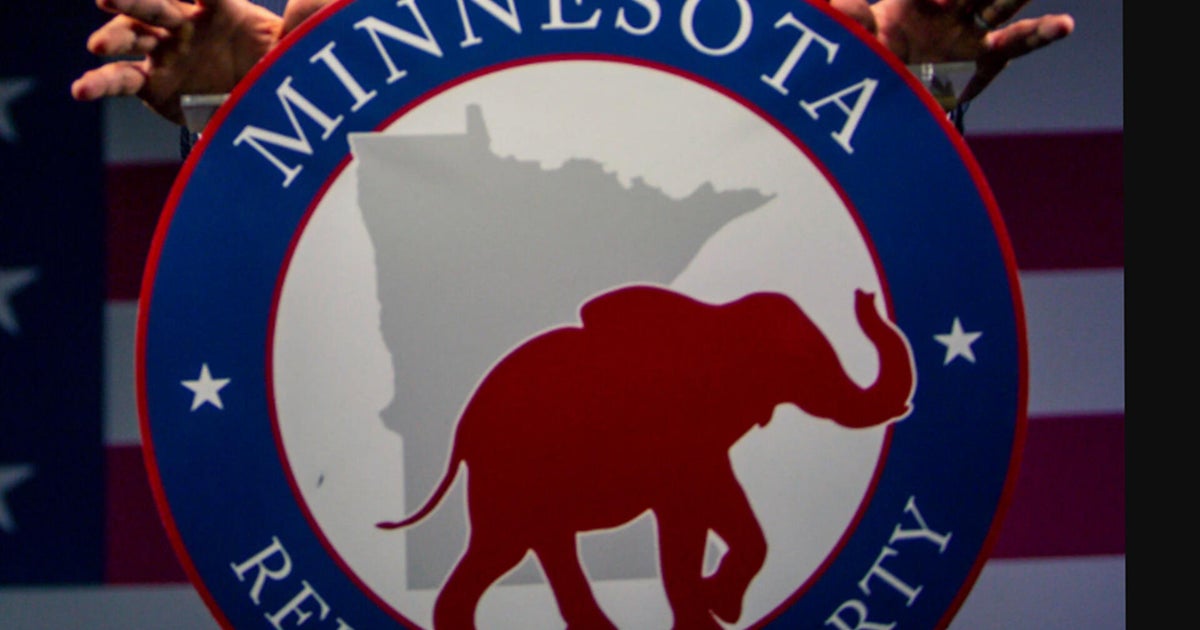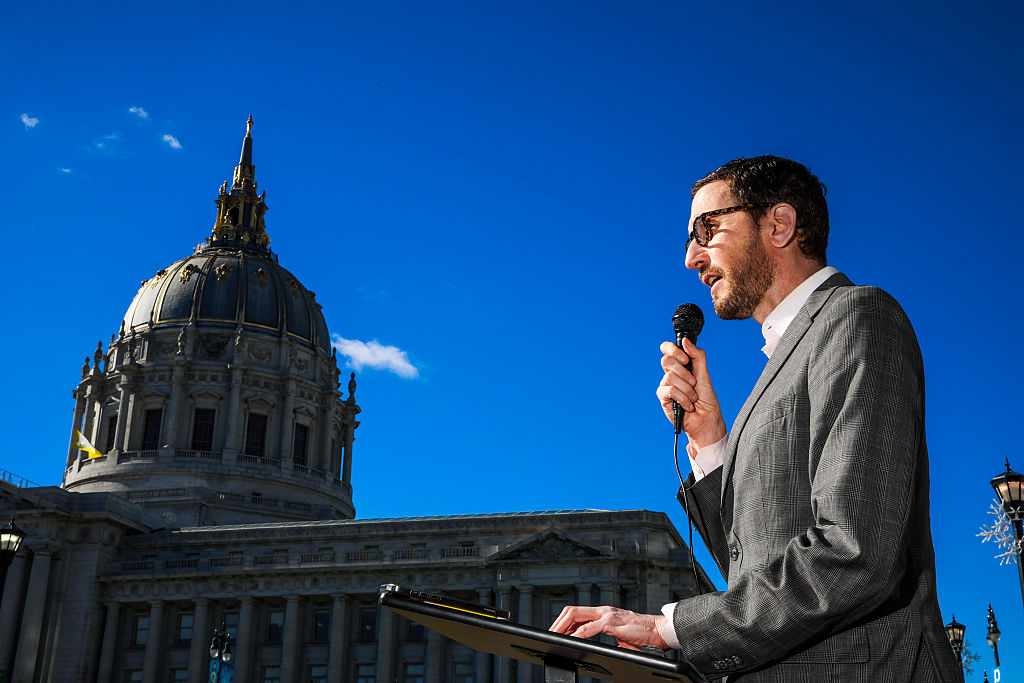Joe Biden prevails in nomination fight with electability argument
Washington — Joe Biden is now the likely 2020 Democratic presidential nominee after his last remaining opponent, Bernie Sanders, dropped out of the race on Wednesday morning, a day after Wisconsin held its primary amid the COVID-19 pandemic. Though the results of that race will not be known until next week, Biden is widely expected to score another decisive victory.
After Sanders announced the end of his presidential campaign, Biden told Sanders in a statement, "You will be heard by me. As you say: Not me, Us."
He also addressed the senator's supporters: "I see you, I hear you, and I understand the urgency of what it is we have to get done in this country. I hope you will join us. You are more than welcome. You're needed."
Now, sources tell CBS News that Biden is already in a "pre-vetting" stage to find a running mate, winnowing a larger list of women-only candidates, since the vetting process requires immense resources.
Biden's case for electability and a return to normalcy has shown increasing resonance amid growing alarm over the coronavirus pandemic. In the end, his early bet on electability, backed up by polling that showed the thing Democrats care most about is which candidate has the best shot of beating Mr. Trump in the general election, consolidated moderate Democratic voters across the country behind Biden.
In the most recent round of primaries before Wisconsin, the former vice president was viewed by a majority of Democratic voters as the candidate they most trust to handle a crisis, according to CBS News primary polling. Biden has criticized the Trump administration's response to coronavirus and recently said that "public fears are being compounded by a pervasive lack of trust in this president, fueled by his adversarial relationship with the truth."
President Trump's handling of the coronavirus crisis presented the latest opportunity for Biden to highlight the president's shortcomings. Biden began his campaign by pointing to the president's controversial comments on racism after the 2017 white supremacist rally in Charlottesville (which Biden says motivated him to run for president). On the international front, Biden has excoriated Mr. Trump's rejection of the globalism of the Obama administration in favor of his "America first" approach.
But until the virus is contained, the state of the 2020 presidential race may be in quarantine, as well.
Just as Biden's rallies were beginning to grow in size and enthusiasm, an almost complete and indefinite shutdown of public campaigning was implemented. Instead of glad-handing on rope lines, Biden, like millions of his fellow Americans, is practicing "social distancing," remaining at his home in Wilmington, Delaware, connecting with voters only through virtual events online.
Before the focus on the virus slowed the Democratic presidential primary process to a creep, Biden's third bid for the presidency was less the virtual anointment of Hillary Clinton in 2016 and more an uphill battle against a gigantic field of opponents in his party, not to mention the president and his political allies.
From the 1994 crime bill to trade deals, during a bruising primary, Biden has defended his almost five-decade-long record against an onslaught of attacks from his Democratic rivals. On several debate stages, he has proudly stood up against progressive assaults on President Obama's legacy.
He has also had to defend his family, which has been trampled by President Trump and his re-election campaign. In addition to personal attacks on Biden for his record on Ukraine, they have eviscerated his son, Hunter Biden, for his previous work for a Ukraine energy company. The president was ultimately impeached in the House over his request from the Ukrainian president to announce an investigation into the Biden family.
With the criticism of some of the stances he's taken over his long political career, the Ukraine attacks, and questions about whether his gaffes were hurting him politically, navigating the trail was often rocky. On the strength of his name recognition, Biden started his campaign with an advantage in early polling, but by the time the earliest states voted, it was clear that some damage had been done, due largely to a combination of the relative strength of Sanders' progressive voters and the fact that the moderate vote was split among too many candidates, in addition to Biden, Pete Buttigieg and Amy Klobuchar's candidacies were taking some votes.
Before the Iowa caucuses, packed gyms and theaters to greeted Biden's fresh-faced rivals, while his events were often more like small Socratic seminars.
By September, Biden advisers were lowering expectations, saying Iowa was not a "must win." He didn't come close to victory on caucus night, though that fact was initially lost in the chaos of the state Democratic Party's failure to report results on the night of the caucuses largely because of problems with its reporting app. Though he received high profile endorsements, Biden's field operations were limited, and he had lost ground to Buttigieg and Sanders, who has tended to thrive in states that hold caucuses.
Still, the fourth-place finish in Iowa came as "a gut punch," Biden said, and his campaign's prospects seemed no brighter in New Hampshire. Days later, on the day of the New Hampshire primary the following week, he announced he was heading south, hoping for a warmer welcome from voters. For months, Biden had been looking toward South Carolina, a state where he was more comfortable than in any of the early states he had campaigned in. As the New Hampshire returns came in, Biden turned to black voters in South Carolina to give his campaign the boost it desperately needed. Calling the state his "firewall," he declared that Americans had heard from predominantly white states of Iowa and New Hampshire, but not yet from black voters.
Though polls showed he was holding onto an advantage in South Carolina, albeit a shrinking one, House majority whip and the state's Democratic kingmaker, Jim Clyburn, gave Biden his heartfelt endorsement, one which turned out to be the single most important endorsement of the Democratic campaign.
"I can't think of anyone better suited, better prepared, I can think of no one with the integrity, no one more committed to the fundamental principles that make this country what it is than my great friend, my late wife's great friend, Joe Biden," Clyburn said.
Off to the side, Biden looked almost stunned by the depth of Clyburn's belief in his campaign. Three days later, Biden won South Carolina, his first presidential primary victory since he first ran for president 33 years ago.
Biden's campaign crowed about support from a "broad coalition"of voters, but it was Clyburn's endorsement, which half of the state's Democratic voters said was an important factor in their vote, and an overwhelming majority of black Democratic voters to whom Biden owed his comeback. In celebrating his victory, the former vice president spoke of the loss of his son, Beau Biden, who died around the time of the 2015 mass shooting at Mother Emanuel AME in Charleston. He said he was inspired by the survivors and families, who, "with every season that's passed, they've gotten up and found purpose to live life worthy of the ones they lost. Worthy of the blessings to live in this remarkable country."
"I wanted to tell you, it's no small reason why I'm in this race," he said. "People like all of you here tonight, all around the country. The days of Donald Trump's divisiveness will soon be over."
That decisive 29-point victory that showed strength in nearly every major voting bloc changed everything for Biden.
Two days later, the tectonic plates of the Democratic field shifted as rivals Amy Klobuchar and Pete Buttigieg dropped out and quickly endorsed Biden. Along with Beto O'Rourke, a newly consolidated moderate movement coalesced and routed Sanders on Super Tuesday as Biden won 10 out of 14 contests.
Biden has made two promises going forward about who he'd put in his administration. In the most recent debate, he said he would pick a woman as a running mate and if there is a vacancy, he said he would nominate the first black woman Supreme Court justice.
If elected, Biden would be just the fourth former vice president to be elected president since the ratification of the 12th Amendment and the only other one besides Richard Nixon to do so in non-consecutive administrations.
"Could I die happily not having heard 'Hail to the Chief' play for me? Yeah, I could, but that's not why I am running," Biden told reporters in August, "I think I can move the country in the direction that can set us in a path for the next 30 years to lead the world, and I really, honest to God, believe that."



